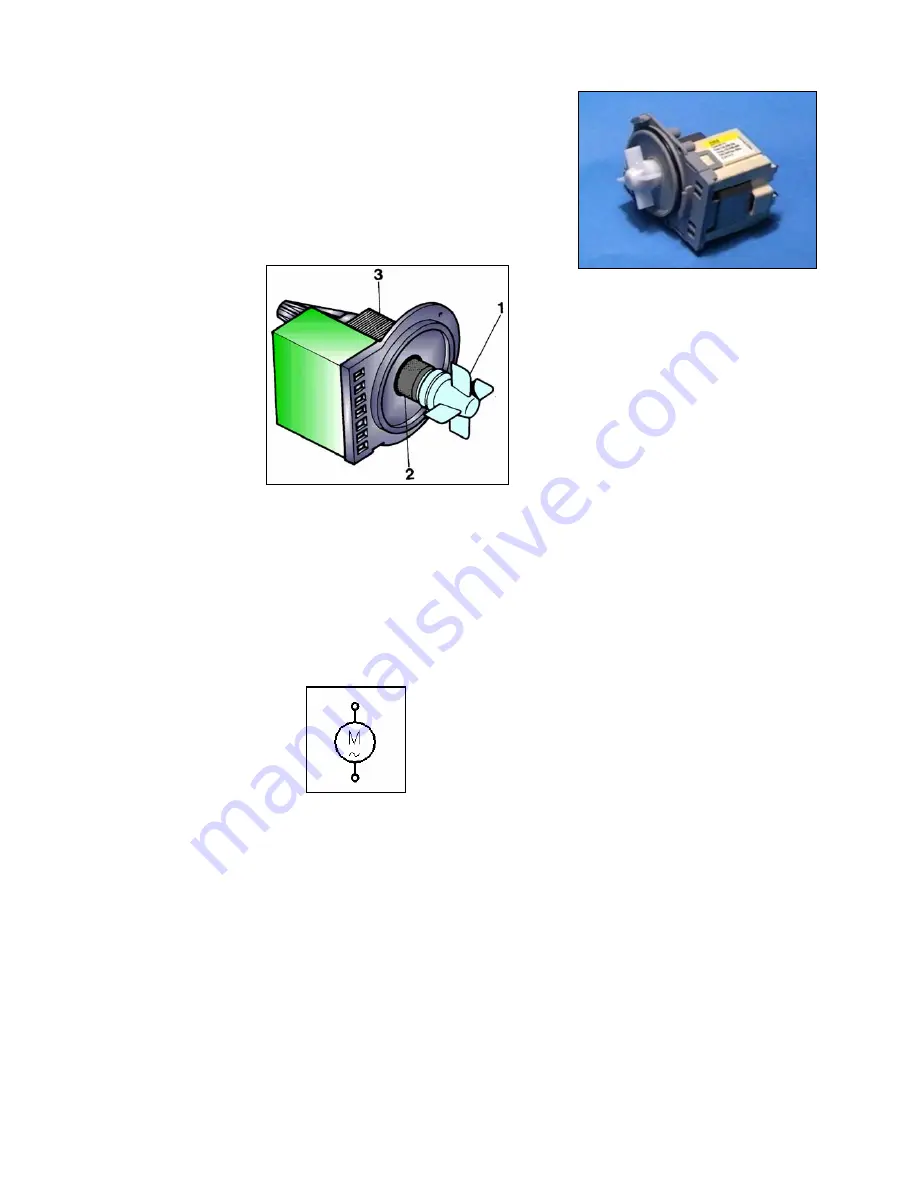
SOI/DT 2006-01 dmm
51/71
599 37 47-13
5.13 Drain
pump
5.13.1 General characteristics
The function of the drain pump is to discharge the water at the end of
each phase of the washing cycle. These centrifugal pumps are
actioned by a synchronous motor.
1. Impeller
2. Rotor
3. Stator
The rotor consists of a permanent magnet, and may rotate in either direction.
The rotor may rotate for approximately 15 minutes without actioning the impeller. As a result, if the impeller
is jammed by a foreign body, the rotor may perform short clockwise and anti-clockwise movements until the
blockage is removed.
These pumps have a delivery of about 22-25 litres per minute, and a maximum head of 90 cm.
5.13.2 Electrical symbol
5.13.3 Checking for efficiency
1. Check that the impeller is not jammed and check for slippage.
2. Check the resistance of the stator winding, which should be approximately 150/200
Ω
.
Important!
If caused to run empty (i.e. disconnected from the hydraulic circuit), synchronous pumps may fail to start up.
This is because, due to their structural characteristics, they require a counter-torque on the impeller to allow
the rotor to turn in one direction or the other.
For this reason, the pumps should be tested only when fitted to the appliance and after introducing a certain
quantity of water.
















































